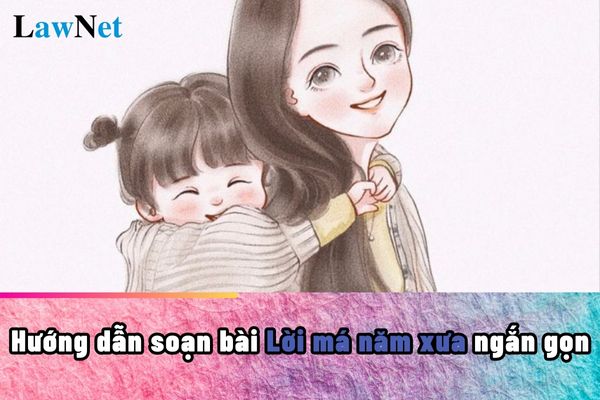What are guidelines for preparing the lesson "Lời má năm xưa" for students in Vietnam? What are regulations on mandatory subjects for grade 10 students in Vietnam?
What are guidelines for preparing the lesson "Lời má năm xưa" for students in Vietnam?
Students can refer to the following guidelines for preparing the lesson "Lời má năm xưa":
|
Guidelines for preparing the lesson "Lời má năm xưa" *Main Content: |
*Note: Information is for reference purposes only./.

What are guidelines for preparing the lesson "Lời má năm xưa" for students in Vietnam? What are regulations on mandatory subjects for grade 10 students in Vietnam? (Image from the Internet)
What are regulations on mandatory subjects for grade 10 students in Vietnam?
Based on Section 3 of the General Education Program issued with Circular 32/2018/TT-BGDDT:
1. Basic Education Stage
...
1.2. Lower Secondary School Level
a) Educational Content
Mandatory subjects and educational activities: Literature; Mathematics; First Foreign Language; Civic Education; History and Geography; Natural Sciences; Technology; Informatics; Physical Education; Arts (Music, Fine Arts); Experiential Activities, Career Orientation; Local Education Content.
Elective subjects: Ethnic Minority Language, Second Foreign Language.
b) Educational Duration
...
2. Career-Oriented Education Stage
2.1. Educational Content
Mandatory subjects and educational activities: Literature; Mathematics; First Foreign Language; History; Physical Education; National Defense and Security Education; Experiential Activities, Career Orientation; Local Education Content.
Elective subjects: Geography, Economic and Legal Education, Physics, Chemistry, Biology, Technology, Informatics, Music, Fine Arts.
Students select 4 subjects from the elective subjects.
...
Grade 10 students study 6 mandatory subjects including Literature; Mathematics; First Foreign Language; History; Physical Education; National Defense and Security Education.
What is the educational plan regarding the study time for grade 10 students in Vietnam?
According to Section 4 of the General Education Program issued with Circular 32/2018/TT-BGDDT, the educational plan during the academic year regarding the study time for grade 10 students is as follows:
The General Education Program is divided into two stages:
The basic education stage (from grade 1 to grade 9) and the career-oriented education stage (from grade 10 to grade 12).
The system of subjects and educational activities of the general education program includes mandatory subjects and educational activities, elective subjects based on career orientation (referred to as elective subjects), and optional subjects.
The actual study time in an academic year is equivalent to 35 weeks. Educational institutions may organize teaching sessions either 1 session per day or 2 sessions per day.
Educational institutions organizing 1 session per day and 2 sessions per day must implement the mandatory unified educational content across all educational institutions nationwide.
In the career-oriented education stage (Upper Secondary School Level)
Each day consists of 1 session, with no more than 5 lessons per session; each lesson is 45 minutes. High schools with adequate conditions are encouraged to conduct 2 sessions per day following the guidelines of the Ministry of Education and Training.
Grade 10 students have an actual study time equivalent to 35 weeks in an academic year.
Each day consists of 1 session with no more than 5 lessons per session; each lesson is 45 minutes. Additionally, high schools with sufficient conditions are encouraged to conduct 2 sessions per day.

